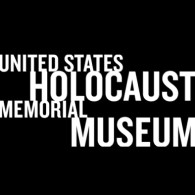
“Towards an Integrated History of the Occupation of Krakow: Digital and Analog Approaches to Nazi and Jewish Buildings and Spaces”
Professional Background and Fellowship Research
Dr. Paul B. Jaskot received his PhD in art history from Northwestern University where he began his initial work on the intersection of forced labor and Nazi policies of oppression. During his period as the Ina Levine Invitational Scholar, Dr. Jaskot, Professor of art history and Director of the Wired! Lab for Digital Art History & Visual Culture at Duke University, will conduct research on the topic of, “Towards an Integrated History of the Occupation of Krakow: Digital and Analog Approaches to Nazi and Jewish Buildings and Spaces.” For this work, he will rely on the extensive collections at the Museum related to the German occupation, photographs depicting the Krakow Ghetto, and the International Tracing Service documents, among others.
Dr. Jaskot’s scholarship focuses on the relationship between architecture and politics in modern Germany, with a specific emphasis on the National Socialist period and the Holocaust. He is the author, editor, and co-author of multiple articles and books on this topic. In addition, Jaskot is a founding member of the Holocaust Geography Collaborative, an international collective of scholars working on how digital mapping and other computational methods help us to advance questions concerning the genocide of the European Jews. He co-authored three articles in their anthology Geographies of the Holocaust, the first book to address the use of Geographic Information Systems (GIS) in Holocaust Studies. His work is especially indebted to on-going collaboration with historical geographer Anne Kelly Knowles; they are currently part of a broader group of scholars using digital and analog means to analyze spatial characteristics of the ghetto system in occupied Eastern Europe. Jaskot’s digital art history work has appeared in the Routledge Companion to Digital Humanities and Art History, the Journal of the Society of Architectural Historians, and Historical Geography, among other venues.
In addition to his scholarly work, Jaskot worked for six years as Director of the Holocaust Education Foundation’s Summer Institute on the Holocaust and Jewish Civilization at Northwestern University and served as co-chair, along with Alexandra Garbarini, of HEF’s 13th annual Lessons & Legacies Conference. He is an active advocate for digital art history, its evaluation, and promotion as well as other issues related to sustaining the international development of art history through his continued activity with the College Art Association (CAA). From 2008-2010, Jaskot served as President of the CAA. Furthermore, Dr. Jaskot was the 2014-2016 Andrew W. Mellon Professor at the Center for the Advanced Study of the Visual Arts at the National Gallery of Art in Washington, DC.
